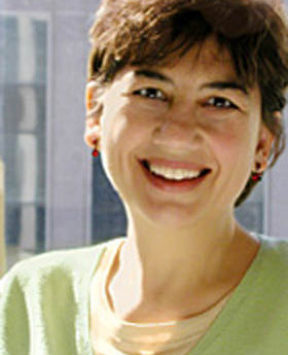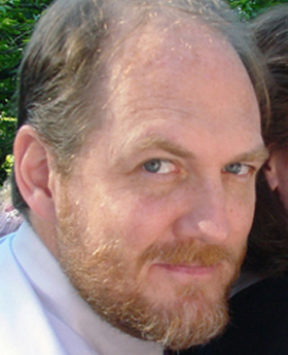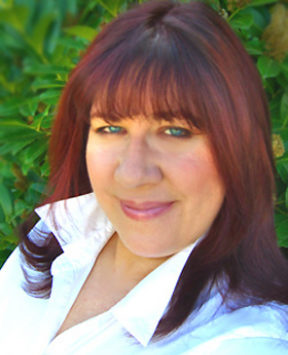The terrorist attack and loss of life this week created a need in many to do something to make it better.
While bad news on a smaller scale can be handled by watching TV coverage, this was different.
TV is passive. The shock and anxiety many felt this week could be endured only if it was directed into action.
The Internet became the interactive medium to which many turned — for many reasons.
The Net gave us constantly updated news stories. We sought out pho-tos, streaming newscasts and first-person accounts. We found ways to volunteer, to do-nate funds, to give blood.
Sympathetic people outside the U.S. had less extensive tele-vision coverage and surfed the Internet to learn details.
Those in closer proximity to the disaster used the Internet to connect to the world when wireless and landline phones failed.
Mike Daisey had no choice other than to use the Internet. The Seattle resident was just blocks from the World Trade Center as he pulled another all-nighter writing his book for Simon & Schuster about his successful one-man-show in Seattle called 21 Dog Years: Doing Time at Amazon.com.
After the crash, he found his phone service was not working. He turned to the Internet to let his wife and friends in Western Washington know he was alive.
And like the writer he is, he chronicled his observations in the hours following the terrorist attacks that transformed the World Trade Center and the Pentagon into disaster zones.
Mike is a frequent guest of WebTalkGuys Radio, which I co-host, and has allowed me to share his story he wrote just before evacuating New York on foot.
You can also read his account at:
www.mikedaisey.com.
Here is some of what he wrote:
I am writing this from downtown New York. In a perverse reversal, I have no way to contact anyone except through my high-speed wireless Internet connection — phones are out, and electricity in the area is intermittent.
The media will ultimately tell the story better than I, but I can tell you that there is massive loss of life.
The sky is black with ash, the people have been panicking and fleeing in unadulterated terror.
I have never seen anything like it. It is very difficult to breathe, even with your mouth covered — the ash blows down the streets and burns your eyes. It feels like the world has ended.
When the screaming started and the crowds began to run after the second plane struck it was a horror film running in overdrive, jumping frames and cutting in and out.
Time got lost — I don’t know how long this went on. I have a cut on my leg. I ended up in a Wendy’s where a huge number of us took refuge. I dont know where the workers were — I helped get water for people.
I am starting to see emergency workers, and the streets are clearing somewhat — at least the first waves of panic are passing.
Ive seen bodies draped in white sheets — it took me a time to realize those were bodies, not injured people; they must be out of room or not be able to get them to the morgues or the hospitals.
Im headed for the Brooklyn Bridge to walk out of the city. I’m going to stop at any hospital I find to give blood before leaving.
If anyone reading this can, please donate blood — I heard from a medic that the hospitals are already running out.
Manhattan Aftermath:
Walking to the Brooklyn Bridge
Sept. 11, 6:41 p.m.
I am writing this from my home in Brooklyn after leaving Manhattan.
I have signed up for a time slot to give blood later this evening and have a few hours available before then.
After my last posting I made my way east through an urban moonscape — everywhere there is ash, abandoned bags in the street, people looking lost.
I managed to get a cell line out to Jean-Michele, who is still in Seattle, and she helped me navigate with online maps as I plotted my exit strategy.
Bizarrely, I caught a taxi crosstown. I was standing at a corner, I’m not even certain where, and a taxi was sitting there.
A very pushy woman, whom I will always be thankful for, barged her way into the cab. In a moment, without thinking, I climbed in too.
The driver, a Pakistani guy who had an improbable smile, immediately took off.
The ash blocks out the sun downtown — its like driving in an impossible midnight, and even more impossible that Im in a cab, with this woman who wont stop trying her cell phone and another man, my age, who looks like hes been crying.
Maybe he just has ash in his eyes. I know I do — I feel like I will never see properly again, though that’s probably just trauma.
I dont even know where the driver is going. The crying man got someone on his cell phone, starts explaining what hes seeing out the window. Its like having a narrator traveling with us — I only notice the things that he is describing as he describes them.
God bless that taxi driver — we never paid him. He let us all off, and I think he got out as well, near the Brooklyn Bridge.
There are cops everywhere, people are herding themselves quite calmly, mutely, onto the bridge. We all walk across the Brooklyn Bridge, which is unbelievably beautiful, the wires and stone of the bridge surrounding us and the bright sun ahead, passing out of darkness.
No one is talking to each other, but there is a sense of warmth. Everyone has their cell phones out, fishing for a clear signal. Those who catch them talk hurriedly to families, friends, people in other cities, children in their homes. It is comforting to hear their voices, telling how they are okay, shhh, it’s okay, I’m okay.
As we walk out into the sunlight, I am so happy to be in this company, the company of people who are alright, those who walked out.
I was in the city today to turn in some of my book; I had stayed up all night writing and I was so worried — is it ready, have I done my work? Those questions seem small today — not unimportant, but smaller, in a new proportion.
I kept thinking of how much I have left to do in my life, so many things that are undone, people I haven’t spoken to in years. Its overwhelming to feel everyone around me thinking the same thing, the restless thoughts trickling over this bridge as we come back to Brooklyn.
From the Promenade I stand with hundreds of others, listening to radios, watching the plumes of smoke and the empty holes in the skyline. People stand there for a long time, talk to one another in hushed tones. Someone hands out a flier for a vigil this evening, which I will go to after I give blood.
What can be said? Just this: We will emphasize the horror and the evil, and that is all true. It is not the entire story. I saw an old man with breathing problems and two black kids in baggy pants and ghetto gear rubbing his back, talking to him.
No one was rioting or looting. People helped each other in small and tremendous ways all day long.
A family was giving away sandwiches at the Promenade.
Everyone I talked to agreed to go give blood.
If a draft had been held to train people to be firefighters there would have been fights to see who got to volunteer.
No matter how wide and intricate this act of evil may be it pales in comparison to the quiet dignity and strength of regular people. I have never been more proud of my country.
Dana Greenlee writes about technology every Friday in the Index. WebTalkGuys, which features technology news and interviews, can be heard Saturdays from 11 a.m. to noon on KLAY 1180 AM in the Tacoma/Seattle area.
Past show and interviews are also Webcast via the Internet at:
www.webtalkguys.com.
This week in Dana Greenlee's column~ Internet used to tell story of horror and hope in Manhattan
Tags: Amazon.com, Brooklyn Bridge, cell phones, cellular telephone, column~ Internet, cut on my leg, Dana Greenlee, driver, electricity, hospital I, Jean-Michele, KLAY 1180 AM, Mike Daisey, New York, Pentagon, Seattle, speed wireless Internet connection, taxi driver, technology news, United States, Washington, WebTalkGuys Radio, World Trade Center, writer, www.mikedaisey.com, www.webtalkguys.com






